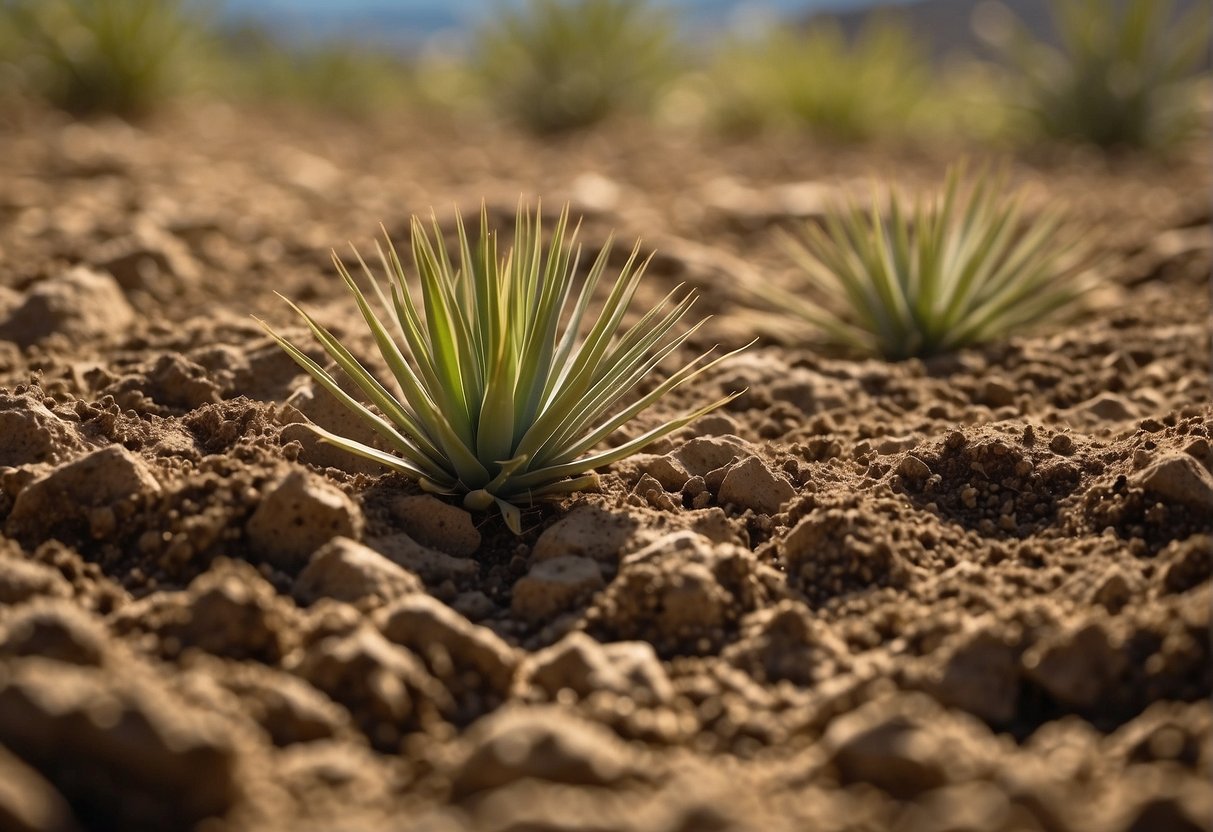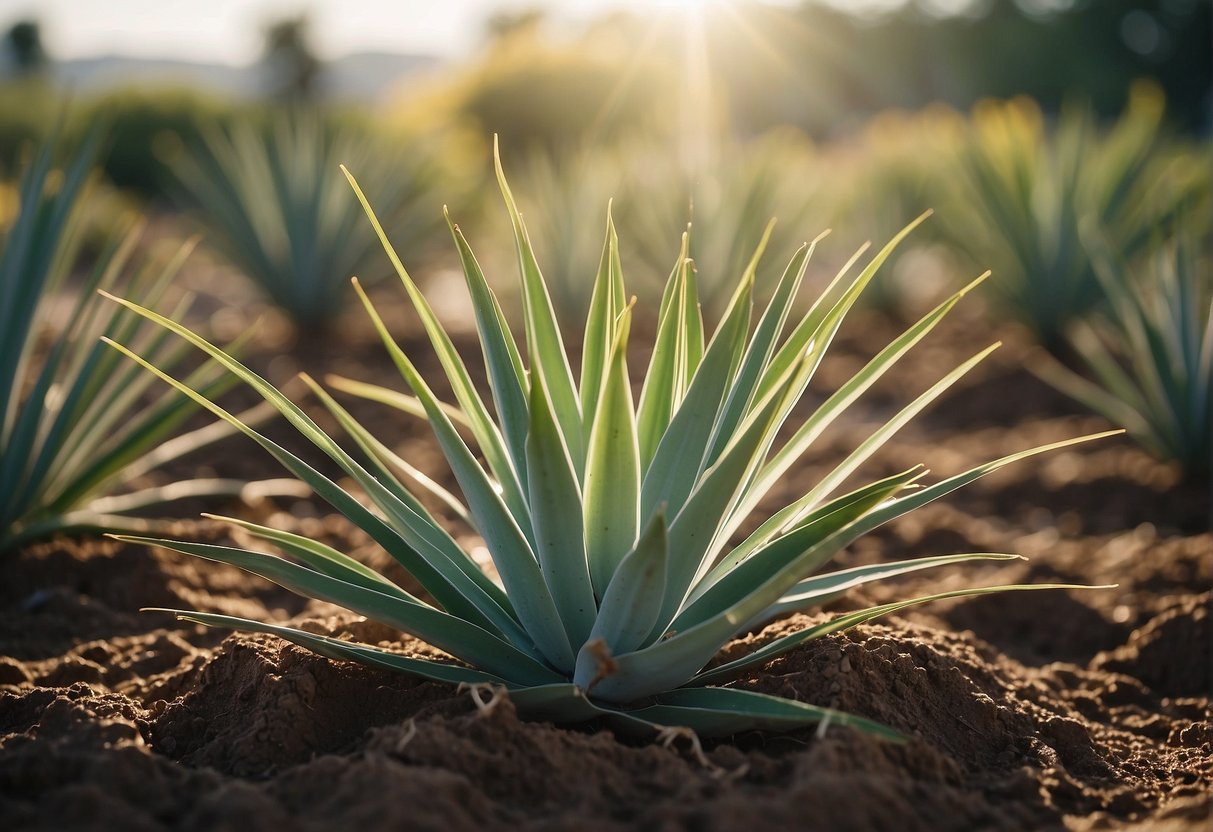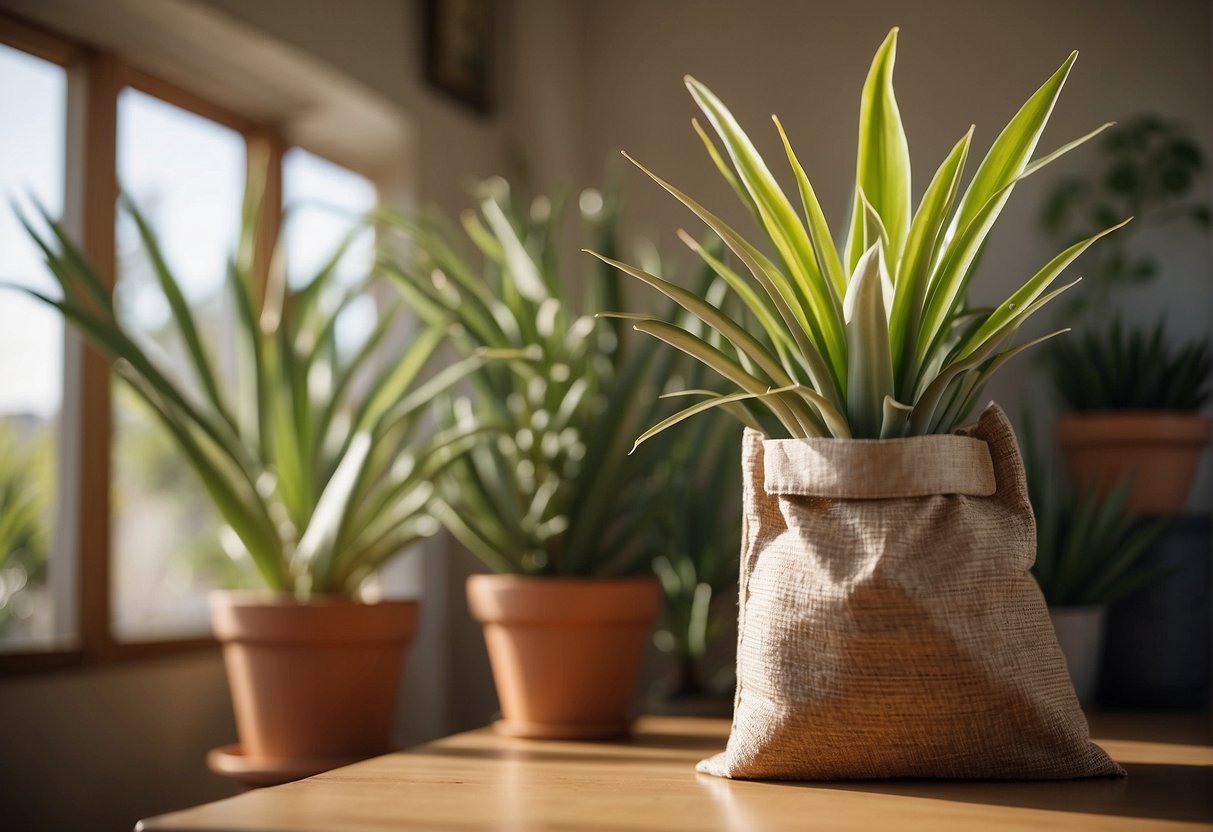For those cultivating yucca plants, it’s crucial to provide them with the optimal soil conditions to flourish. Yucca plants are known for their resilience and ability to adapt to various soil types; however, achieving the right soil conditions can significantly enhance their growth. This article will explore the ideal soil for yucca plants and provide guidance on how to care for yucca plants effectively, including maintenance tips.

Optimal Soil Conditions for Yucca Plants
Yucca plants prefer well-draining soil that is slightly acidic to neutral in pH. They can tolerate a range of soil types, from sandy to loamy, but heavy clay soils should be avoided as they can become waterlogged and lead to root rot. Yucca plants are also quite drought-tolerant, so it’s important to avoid over-watering, which can lead to root rot and other issues.
Yucca Plant Care and Maintenance
In addition to providing the right soil conditions, there are a few other things to keep in mind when caring for yucca plants. These plants prefer bright, indirect light and should be watered sparingly. They are also relatively low-maintenance and don’t require much in the way of fertilization or pruning. However, it’s important to keep an eye out for any signs of pests or disease, as these can quickly take a toll on your plants if left unchecked.
Key Takeaways
- Yucca plants prefer well-draining soil that is slightly acidic to neutral in pH.
- Yucca plants are drought-tolerant and should be watered sparingly to avoid over-watering.
- In addition to providing the right soil conditions, yucca plants require bright, indirect light and regular monitoring for pests and disease.
Optimal Soil Conditions for Yucca Plants
Yucca plants are known for their hardiness and drought tolerance, but they still require specific soil conditions to thrive. Here are the optimal soil conditions for yucca plants:
Soil Composition and Texture
Yucca plants prefer well-draining soil with a sandy or gritty texture. Soil that is too heavy or clay-like can lead to root rot and other problems. Adding perlite or sand to the soil mix can help improve drainage and create a more suitable environment for yucca plants.
Drainage Requirements
Good drainage is essential for yucca plants. They do not like to sit in water or have their roots constantly wet. To ensure proper drainage, make sure the soil is well-draining and the pot has drainage holes. You can also add a layer of gravel or rocks at the bottom of the pot to help water drain away from the roots.
Soil pH and Nutrient Levels
Yucca plants prefer slightly acidic to neutral soil with a pH range of 6.0 to 7.5. They do not require a lot of nutrients, but a balanced fertilizer can help promote healthy growth. Avoid over-fertilizing, as this can lead to burning and damage to the plant.
In conclusion, yucca plants prefer well-draining soil with a sandy or gritty texture, good drainage, and slightly acidic to neutral soil with a pH range of 6.0 to 7.5. By following these guidelines, you can ensure your yucca plant thrives in its potting soil.
Yucca Plant Care and Maintenance

Yucca plants are known for their low maintenance and drought-tolerant nature, making them a popular choice for indoor and outdoor gardening. However, to ensure that your yucca plant thrives, it is important to provide it with the right soil, watering, and fertilizing. In this section, we will discuss the best soil for yucca plants and other important aspects of yucca plant care and maintenance.
Watering and Fertilizing
Yucca plants require minimal watering, and overwatering can lead to root rot and fungal diseases. Water your yucca plant only when the soil is completely dry, and make sure the pot has proper drainage to avoid waterlogging. During the growing season, fertilize your yucca plant with a low-nitrogen fertilizer every two weeks to promote healthy growth.
Pruning and Repotting
Yucca plants require minimal pruning, and you should only remove dead or damaged leaves. Repot your yucca plant every two to three years, or when the roots start to outgrow the container. Choose a container that is slightly larger than the current one and use well-draining soil.
Pests and Diseases
Yucca plants are generally pest and disease-resistant, but they can be susceptible to mealybugs, aphids, and fungal diseases. To prevent these issues, avoid overwatering and provide adequate air circulation. If you notice any pests or diseases, treat them promptly with a suitable pesticide or fungicide.
In summary, yucca plant care is relatively simple and low maintenance, but it is important to provide your plant with the right soil, watering, and fertilizing. With proper care, your yucca plant will grow into a mature plant that adds a touch of natural beauty to your home or garden.
Frequently Asked Questions

What type of soil promotes healthy growth in indoor yucca plants?
Indoor yucca plants require well-draining soil that is rich in nutrients. A mixture of sand, perlite, and peat moss can provide the perfect balance of drainage and nutrition. Avoid using heavy clay soils, as they can retain too much water and lead to root rot.
How should I amend soil for planting yucca outdoors?
When planting yucca outdoors, it’s important to amend the soil to ensure good drainage. Mix in sand, perlite, or gravel to improve drainage and prevent water from accumulating around the roots. Yucca plants also prefer soil that is slightly alkaline, so adding lime can help balance the pH.
Can yucca plants thrive in standard potting mix?
While standard potting mix can be used for yucca plants, it’s important to add in extra perlite or sand to improve drainage. Yucca plants are susceptible to root rot, so it’s crucial that the soil doesn’t hold too much water. Adding in a slow-release fertilizer can also help provide the necessary nutrients for healthy growth.
What are the soil requirements for yucca plants in containers?
Yucca plants in containers require soil that is well-draining and nutrient-rich. A mixture of sand, perlite, and peat moss is ideal for indoor yucca plants. Outdoor container yucca plants benefit from a mix of sand, perlite, and gravel to improve drainage. It’s also important to use a container with drainage holes to prevent water from accumulating around the roots.
Is it necessary to use a special blend of soil when repotting yuccas?
While it’s not necessary to use a special blend of soil when repotting yuccas, it’s important to ensure that the soil is well-draining. A mix of sand, perlite, and peat moss can provide the necessary drainage and nutrients for healthy growth. Repotting yuccas every two to three years can also help prevent overcrowding and promote healthy growth.
Does using cactus mix benefit yucca plant health and growth?
Cactus mix can be beneficial for yucca plant health and growth, as it provides the necessary drainage and nutrients. However, it’s important to ensure that the cactus mix is well-draining and doesn’t hold too much water. Adding in extra perlite or sand can help improve drainage and prevent root rot.














